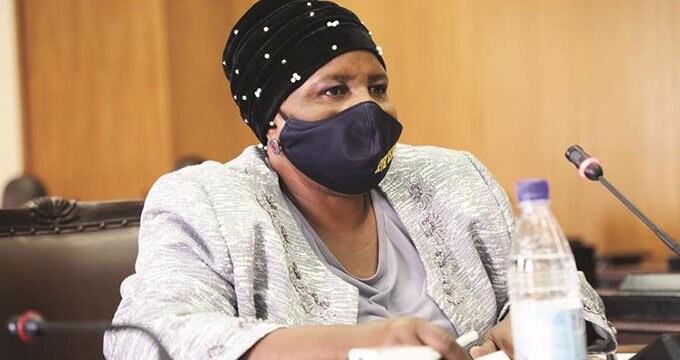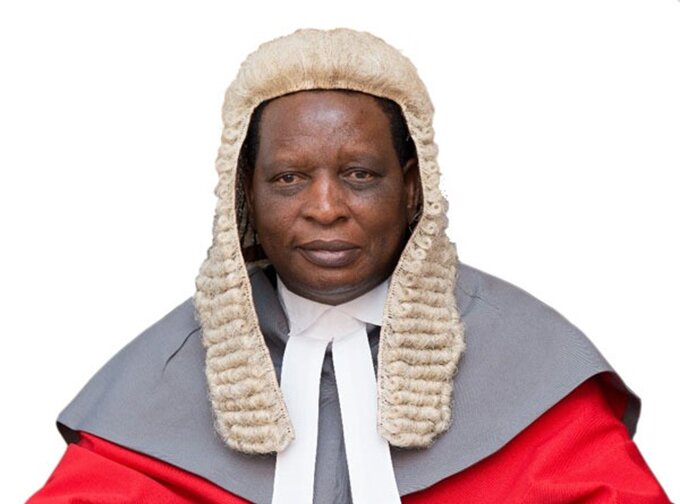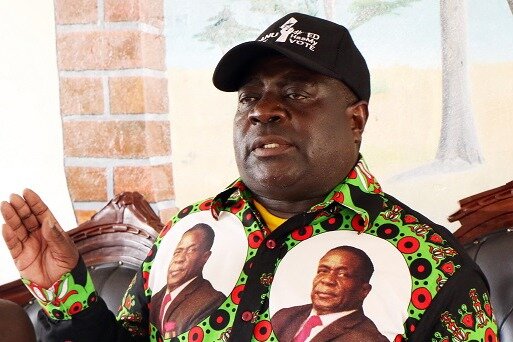Joseph Madzimure and Elita Chikwati
FINANCE and Economic Development Minister Professor Mthuli Ncube yesterday said Government was seized with addressing salaries for civil servants and the issue will be solved in a few weeks’ time. The Government last week offered civil servants a 100 percent pay rise, in a move that will result in the least-paid worker taking home $2 033, up from $1 023 per month.
Civil servants will each get between $400 and $800, depending on grades, beginning today as a cushioning allowance for January.
However, civil servants rejected the offer.
They continued demanding that their salaries be pegged on the interbank rate, with the lowest-paid worker getting the equivalent of US$475 monthly.
Minister Ncube said Government had other pressing issues that required equal attention.
He said the issue included ensuring national food security, power generation, job creation and stabilising the local currency.
“We are negotiating with civil servants against the vagaries of inflation,” said Minister Ncube.
“Those negotiations are making progress. When negotiating there can be disagreements and that is normal. But we as the employer, we are going to make sure there is a decent salary for civil servants.
Advertisement
“We appreciate the work that they do and also we are going to honour that by this cushioning allowance. It is our expectation that we come to some agreement in the next few weeks so that we can move forward.”
Minister Ncube said the Government was going to repeat what happened last year when civil servants were awarded cushioning allowances and adjustments constantly.
“Last year we did it twice during the year,” he said.
“We had a cushioning allowance and then had another adjustment in April last year, another adjustment in July and a bonus in November. So, this year again, we will follow a similar pattern with multiple points to cushion civil servants.”
More than 15 civil servants’ associations and eight staff associations met in Harare yesterday to receive feedback on Government’s position on last week’s meeting.
In an interview after the meeting, Public Service Association president Mrs Cecilia Alexander said civil servant’s representatives met and disagreed with the Government offer.
“They said they are incapacitated, hence there is need to peg their salaries equivalent to US$475 at the interbank rate for the minimum worker,” she said.
“We will continue to engage the Government until our demands are met.”
An economic analyst, Mr Persistence Gwanyanya, said while experts were fully convinced about the need to improve the remuneration of civil servants in line with the rising cost of living, that should be in line with the major objectives to achieve low and stable inflation.
“Now, pegging salaries against the interbank rate does not achieve this as it’s likely to result in wage price spiral,” he said.
“This will take us back to the hyperinflation period of 2008. What this means is we should understand that we are in a transition and we can’t achieve all goals at once. We need logical sequencing of interventions.”
Mr Gwanyanya said ideally, salaries should be increased, but not to the extent of pegging them to a set US dollar figure paid out at the interbank rate.
He said Government and labour should agree with a level of salary increase that achieves the major objective of low and stable inflation whilst improving the standard of living of civil servants.
Advertisement
“The subsidies model currently in place has to be effectively implemented to reduce the cost of living,” said Mr Gwanyanya.
“That is where Government can provide an acceptable excuse not to increase salaries in line with the interbank rate.”
Minister Ncube gave further updates on Government efforts to ensure everyone had enough food.
“Impact of climate change, issue of drought, making sure there is food on the table; food security is key and we have put resources in place,” he said. “We will continue to mobilise resources for importation of grain, but also climate proofing agriculture by investing in irrigation.
“We are already mobilising resources for the winter Command Agriculture Programme. Energy security is also important, making sure that we pull resources for importation of power from South Africa and Mozambique and supporting Zesa to ensure it has capacity to generate power and speeding up the issuances of licenses for independent power producers and for solar energy.”
Minister Ncube said it was important for Government to stabilise the local currency so that citizens have confidence in the money and stop using foreign currency.
“We want to stabilise our currency, make sure the Zimbabwe dollar is stable and we inject more cash into the economy; higher denomination notes are coming through,” he said.
“Once we stabilise our currency, it will make sure our prices do not shoot up. On the fiscal front, we have to continue to manage things prudently; we do not add to currency volatility by monetising budget deficit and government expenditure.
“On the monetary front, money supply growth led by the central bank cannot increase to levels where it becomes a strain to the budget.”
Minister Ncube emphasised the importance of improving the ease of doing business to attract investors.
“We should deal with pockets of lawlessness; machete-wielding gangs in the gold sector,” he said. “We want to have sanity in the gold sector. Gold is our oil so we want to make sure there is maximum revenues out of the sector.”
Minister Ncube dismissed speculation that Zimbabwe was redollarising and said the country was in a transition that required more time to take effect.
“Zimbabwe is going through a transition,” he said.
“We cannot have a silver bullet solution instantly. What is required is for citizens to have confidence in their currency.
“As Government, we also have an obligation to make sure the currency is stable. Once stable, citizens have more confidence in their currency, you will see them move away from the US dollar prices and accept the Zimbabwe dollar as a currency of transaction.”
Advertisement
– HERALD








